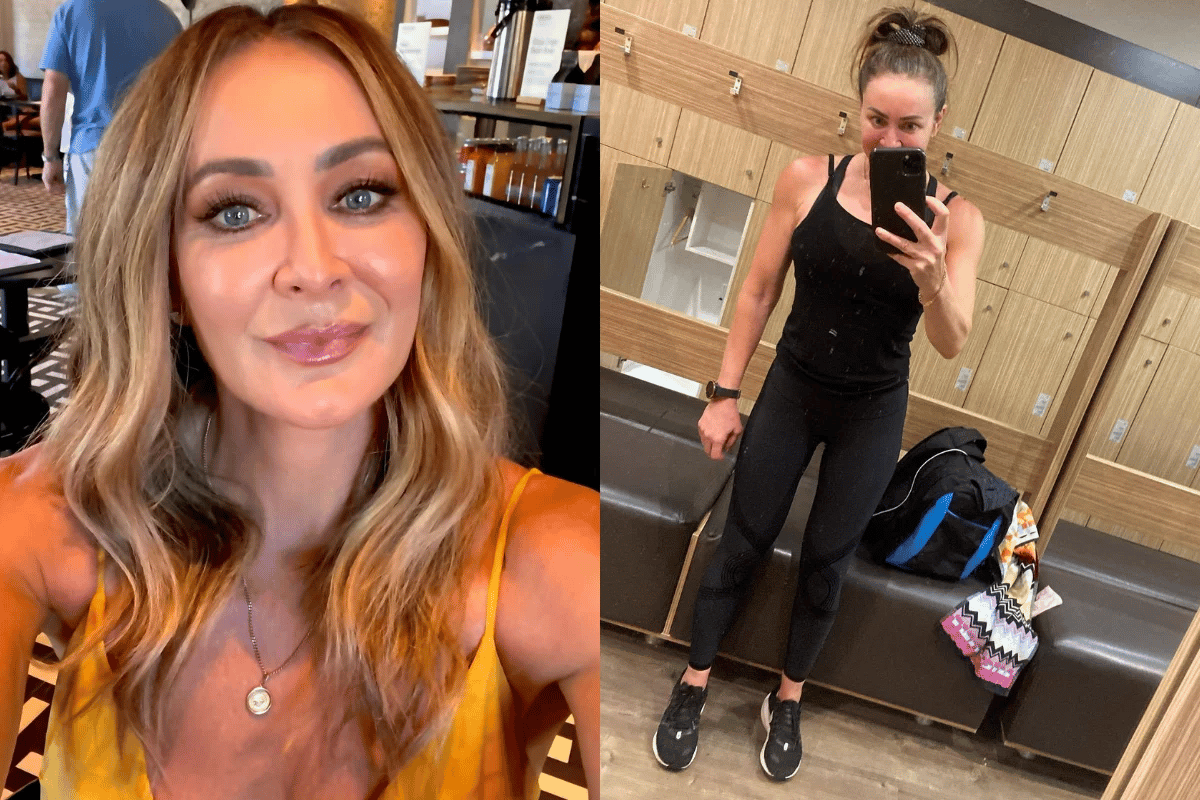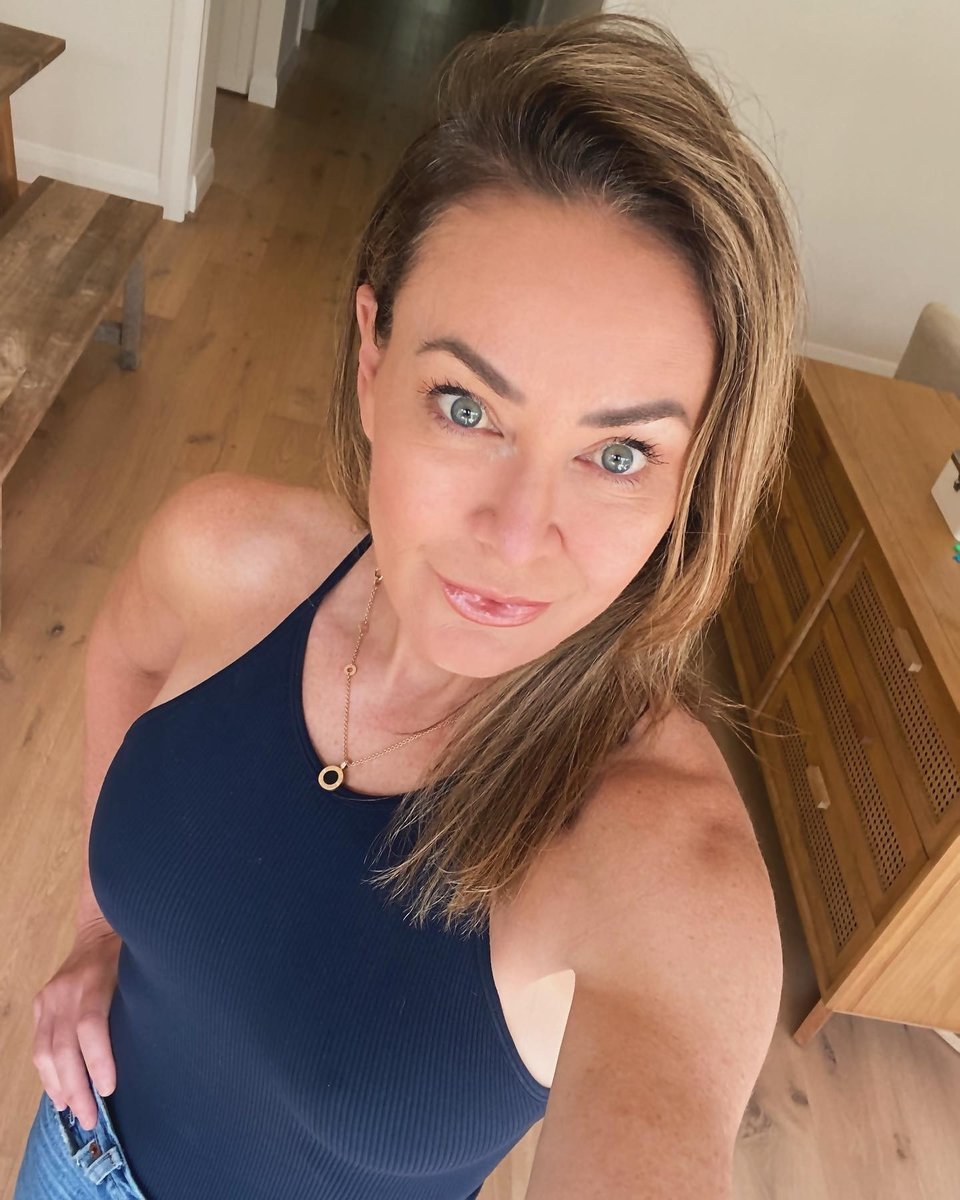
Michelle Bridges once said "you are in control of your body". And she practised what she preached.
The former Biggest Loser trainer was uncompromising in her approach, exercising almost every day, eating cleanly, and encouraging other women to do the same.
It was a consistent routine that had served her well for years. She was the healthiest version of herself. Then she hit her late forties and everything changed.
Michelle's body, which once acquiesced to her stringent healthy lifestyle, was no longer in her control. Instead, the personal trainer started experiencing debilitating symptoms which threatened to undo a once airtight routine.
"I was not sleeping, waking up, not going back to sleep," Michelle told Mamamia of the symptoms. "I had tinnitus… it was like the old internet dial-up sound, the sound that I was getting in my ears, thinking we had some sort of internet issue in my house."
Soon, she was struggling to regulate her temperature, feeling hot and sweaty at random times.
"But I wasn't having a hot flash, it was different," Michelle said. "I also had a very uncomfortable gnawing, like a chainsaw, issue with my hip. And I had a little bit of anxiety that I'd never really experienced before in my life."
Watch: A GP on recognising the signs of perimenopause early in the conversation. Post continues below.






























































































